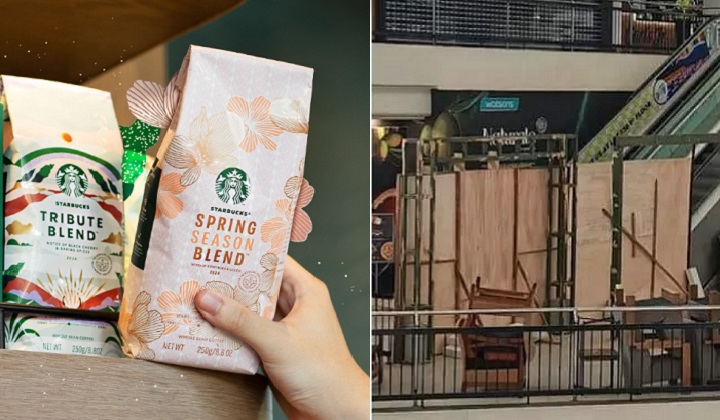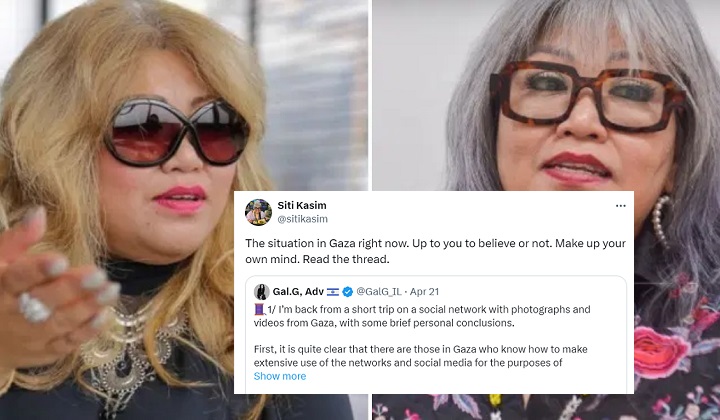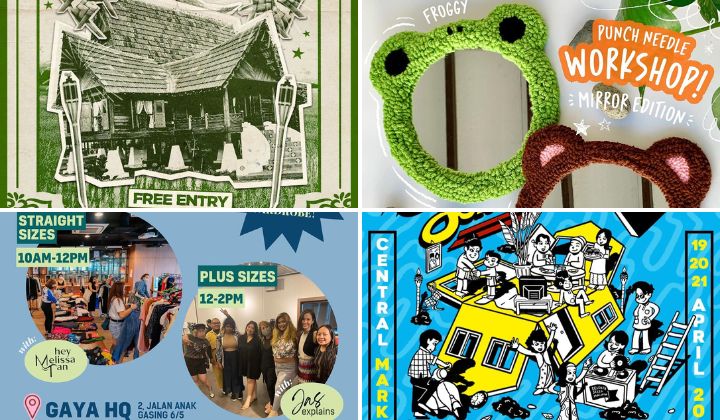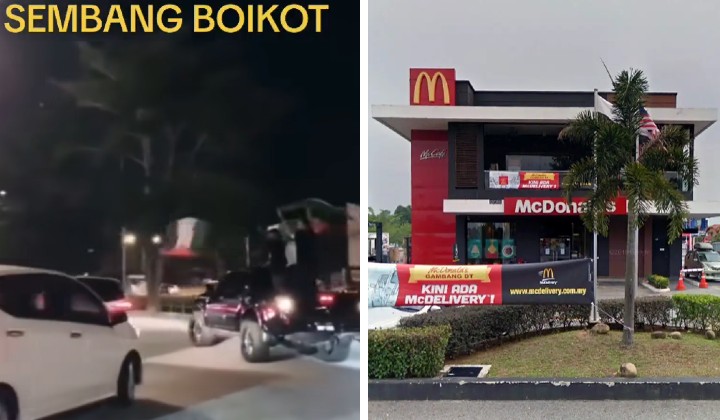Starbucks Subang Parade Is No More? Netizens Debate Bittersweet Brew Of Politics, Boycotts, And Local Pride
Starbucks Malaysia has yet to address the closure of its Subang Parade outlet but the status on Google says ‘permanently closed’.

Subscribe to our FREE Newsletter, or Telegram and WhatsApp channels for the latest stories and updates.
In a surprising turn of events, it appears that Starbucks Malaysia has shut down its outlet in Subang Parade, Selangor.
While there has been no official announcement, the store’s status says “permanently closed” on Google.
This comes amidst a wave of boycotts and political tensions stemming from the ongoing Gaza conflict, leaving Malaysians divided over the implications of supporting international chains versus local brands.
The boycott movement gained traction on social media, with many Malaysians expressing their solidarity with the Palestinian cause by calling for a boycott of Starbucks and other companies perceived to be supporting Israel.
So much memories here. So long starbucks Subang Parade pic.twitter.com/CgBV4K1Yqb
— Asyraf Farhan (@AsyrafFarhan27) March 2, 2024
Starbucks Owner’s Plea Falls on Divided Ears
Tan Sri Vincent Tan, the owner of the Starbucks franchise in Malaysia, has urged Malaysians to continue supporting the brand.
He argues that the closure of outlets will primarily affect local employees and suppliers.
Berjaya Food – pemilik Starbucks Malaysia rugi RM29 juta.
— Najib Fazail (@najibfazail) February 21, 2024
Sales pun drop dari RM295 juta ke RM182 juta.
Boikot berjaya 👏 pic.twitter.com/eO88ENSRMK
However, his plea has been met with mixed reactions, as many Malaysians see the boycott as a means of exercising their consumer power and sending a message about their political beliefs.
The closure of the Subang Parade outlet has reignited the debate about supporting local businesses and brands.
Malaysia boasts a thriving coffee culture, with numerous homegrown cafes and roasters offering high-quality, locally sourced coffee.
Advocates for local businesses argue that supporting these establishments keeps money within the local economy and fosters a sense of community and national pride.
Vincent Tan: “pls stop boycotting Starbucks Malaysia”
— Z id (@zzeed) March 5, 2024
No, we’re gonna double down on this.
Mari memajukan Richiamo. pic.twitter.com/zXl8ETvO5y
It’s a Small World After All: The Tangled Web of Global Business
But hold up, some Malaysians are saying it’s not as easy as just picking sides between local and international brands. In today’s globalized economy, the lines are more blurred than a coffee addict’s vision after their tenth espresso.
Many Malaysian businesses have their fingers in pies worldwide, with partnerships and supply chains stretching far beyond the country’s borders.
It’s like trying to untangle a pair of earbuds that’s been in your pocket all day – good luck with that.
READ MORE: Mamak Restaurant Replaces Foreign Products With Local Ones Amid Boycott Movement
READ MORE: Mother Seeks Help As Baby’s Health Suffers Amidst Israeli Product Boycott
Boycotts: A Grande Gesture or a Short Shot?
And then there’s the question of whether boycotting Starbucks will make a difference in the grand scheme of things.
Some Malaysians are sceptical, arguing that closing one outlet, or even a few, doesn’t bring peace to the Middle East.
They say if you want to support the Palestinian cause, you’re better off making a donation or getting involved in some good old-fashioned political activism.
After all, a boycott might make you feel good, but it won’t change the world overnight.
The Dilemma Facing Malaysian Consumers
As the dust settles on the Starbucks closure, Malaysians grapple with the complex interplay of politics, consumer power, and national identity.
This complex situation underscores the nuanced impacts of consumer activism, highlighting the need for a more comprehensive approach to addressing economic and social grievances within the global marketplace.
Regardless of one’s stance on the boycott, the Starbucks closure sparked a much-needed conversation about the role of consumers in shaping the world around them.
As Malaysians continue to navigate the challenges of a globalized economy and the ever-shifting landscape of international politics, the importance of conscious consumption and supporting local communities has never been more apparent.
Ultimately, supporting local or international brands is personal and shaped by various factors, from political beliefs to taste preferences.
Share your thoughts on TRP’s Facebook, Twitter, and Instagram.




